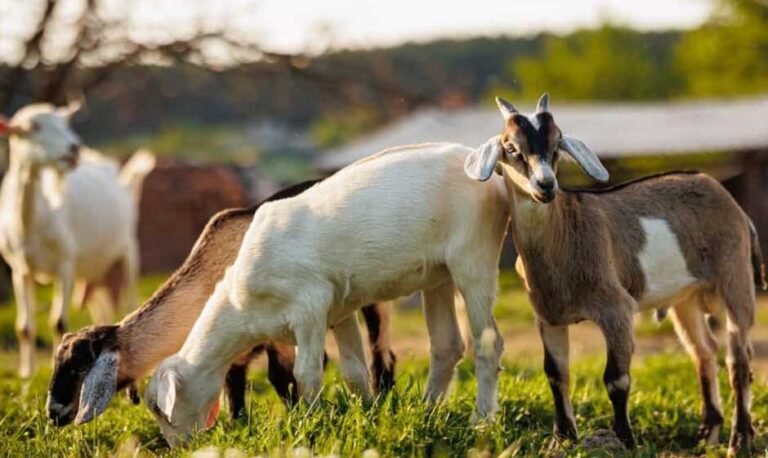If you’re raising goats, you already know how important a quality pasture is for keeping your herd healthy, well-fed, and productive. Goats are natural grazers, but their nutritional needs go beyond munching on whatever grows nearby. The right goat pasture seed blend can make all the difference in providing the balance of nutrients, palatability, and sustainability your herd needs. Let’s dive into what makes a great pasture mix and how you can set your goats up for grazing success.
Why a Balanced Goat Pasture Is Essential
Goats are browsers by nature, meaning they prefer a mix of grasses, legumes, and even shrubs to satisfy their dietary needs. A carefully chosen pasture seed mix ensures:
- Proper Nutrition: High-quality grasses and legumes offer the protein, energy, and fiber goats need to thrive.
- Healthier Goats: Good forage supports better digestion, weight gain, and overall health, reducing reliance on supplements.
- Improved Land Management: A healthy pasture helps prevent overgrazing, soil erosion, and weed dominance, keeping your land productive for years to come.
What to Look for in Goat Pasture Seed
Not all pasture seed blends are created equal. Goats require a mix of plants that grow well in your climate, are nutritious, and can handle regular grazing. Here are the key components to look for:
1. Grasses
Cool-season and warm-season grasses provide the bulk of forage for goats. Look for varieties like:
- Orchardgrass: Palatable, high-yielding, and grows well in many climates.
- Tall Fescue (endophyte-free): Durable and nutritious with excellent regrowth potential.
- Bromegrass: A reliable option for cooler regions.
2. Legumes
Legumes are an excellent source of protein and help fix nitrogen in the soil, improving pasture health. Popular choices include:
- White Clover: High-protein forage that tolerates grazing well.
- Alfalfa: Rich in nutrients but better suited for rotational grazing to avoid overgrazing damage.
- Birdsfoot Trefoil: Non-bloating and excellent for mixed pastures.
3. Forbs and Browse
Adding forbs like chicory or plantain brings diversity to the pasture and boosts mineral content. Goats also love woody shrubs or small trees, so including browse options where possible adds variety.
Planting Tips for a Thriving Goat Pasture
To get the most out of your goat pasture seed, here are a few planting and management tips:
- Test Your Soil: Start with a soil test to understand pH levels and nutrient deficiencies, ensuring the pasture has the best conditions for growth.
- Rotate Grazing Areas: Goats can be hard on pastures if left too long in one spot. Rotational grazing helps maintain plant health and encourages regrowth.
- Time Your Planting: Plant cool-season grasses in early spring or fall, and warm-season varieties in late spring when soil temperatures are warmer.
- Overseed Regularly: Over time, areas of the pasture may thin out. Overseeding helps maintain a thick, healthy stand of forage.
Why the Right Seed Blend Matters
The right goat pasture seed blend ensures your herd stays well-fed and minimizes the need for additional hay or supplements. Creating a diverse pasture encourages natural grazing behaviors that support goat health and improve your land’s overall productivity.
Trust the Experts for High-Quality Seed
When choosing seed for your goat pastures, quality matters. You’ll find premium blends at Nature’s Seed specifically designed for healthy grazing and sustainable land management. You can create a thriving pasture that keeps your goats happy and nourished with the right mix of grasses, legumes, and forbs.
Start Planting a Better Pasture
Investing in the right goat pasture seed is one of the best decisions you can make for your herd’s health and your land’s future. By choosing a diverse, well-balanced seed mix and managing your pasture with care, you’ll enjoy healthier goats, lower feed costs, and more sustainable grazing for years to come. It’s time to grow smarter and graze better—your goats will thank you!


